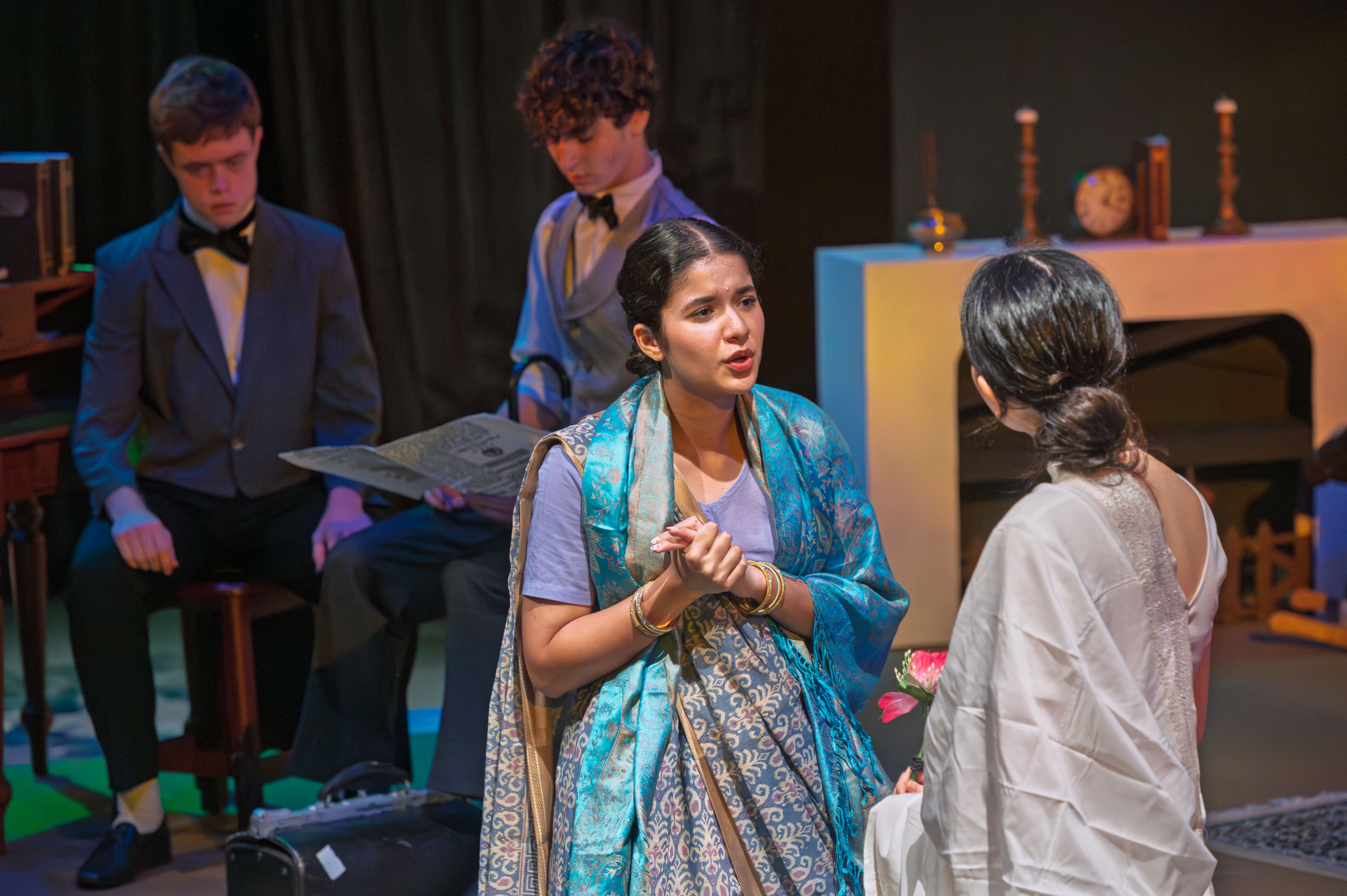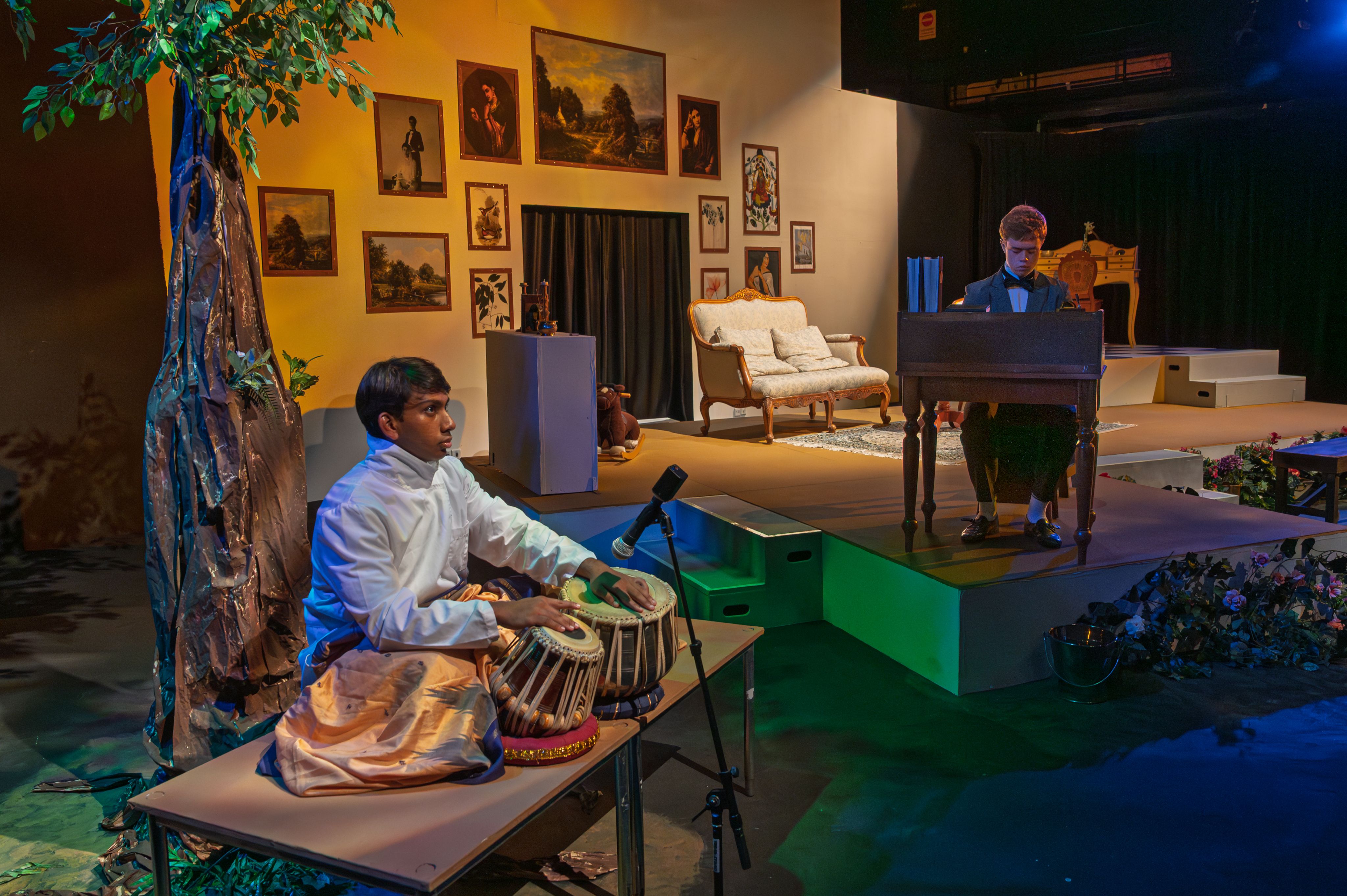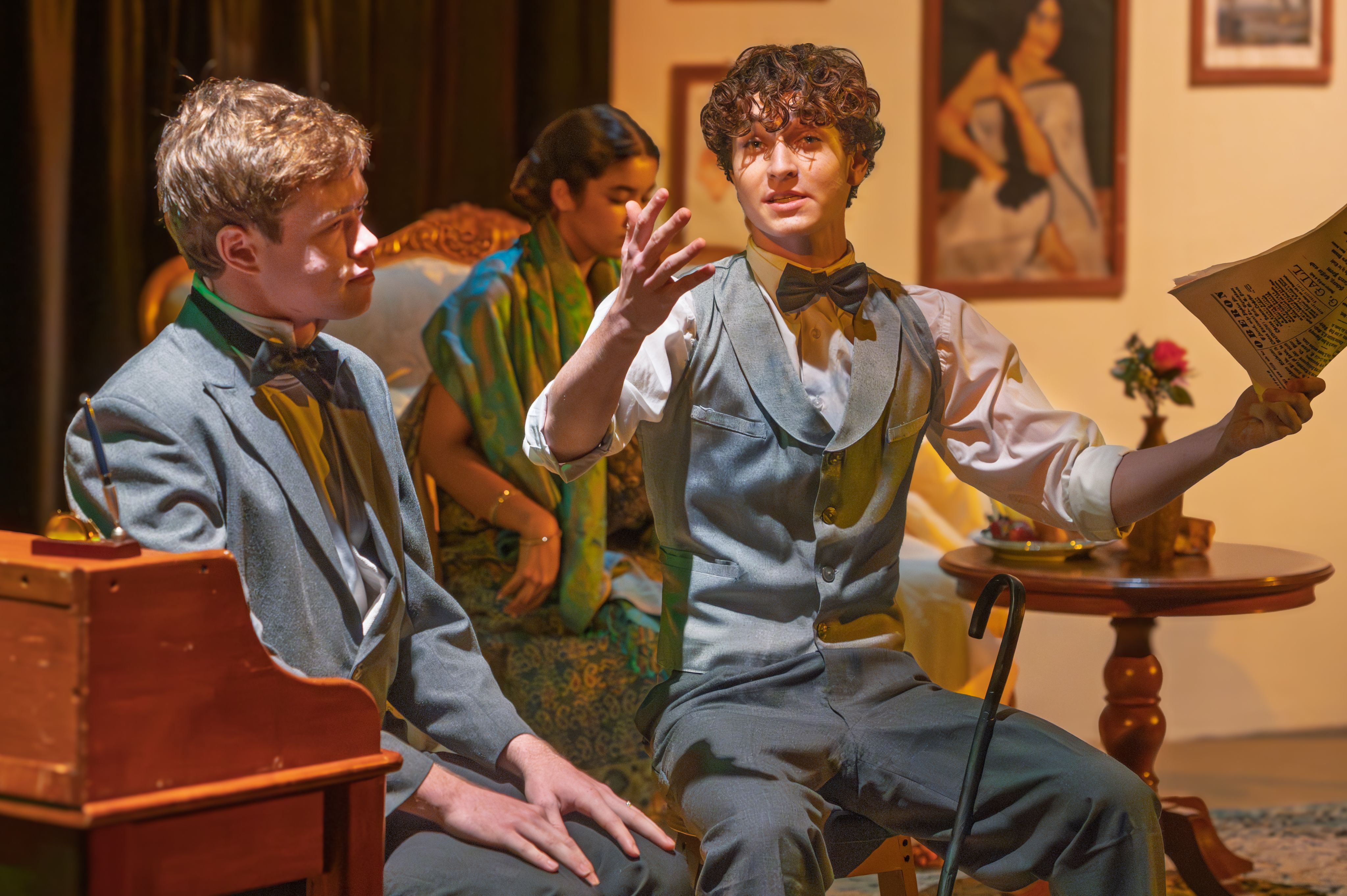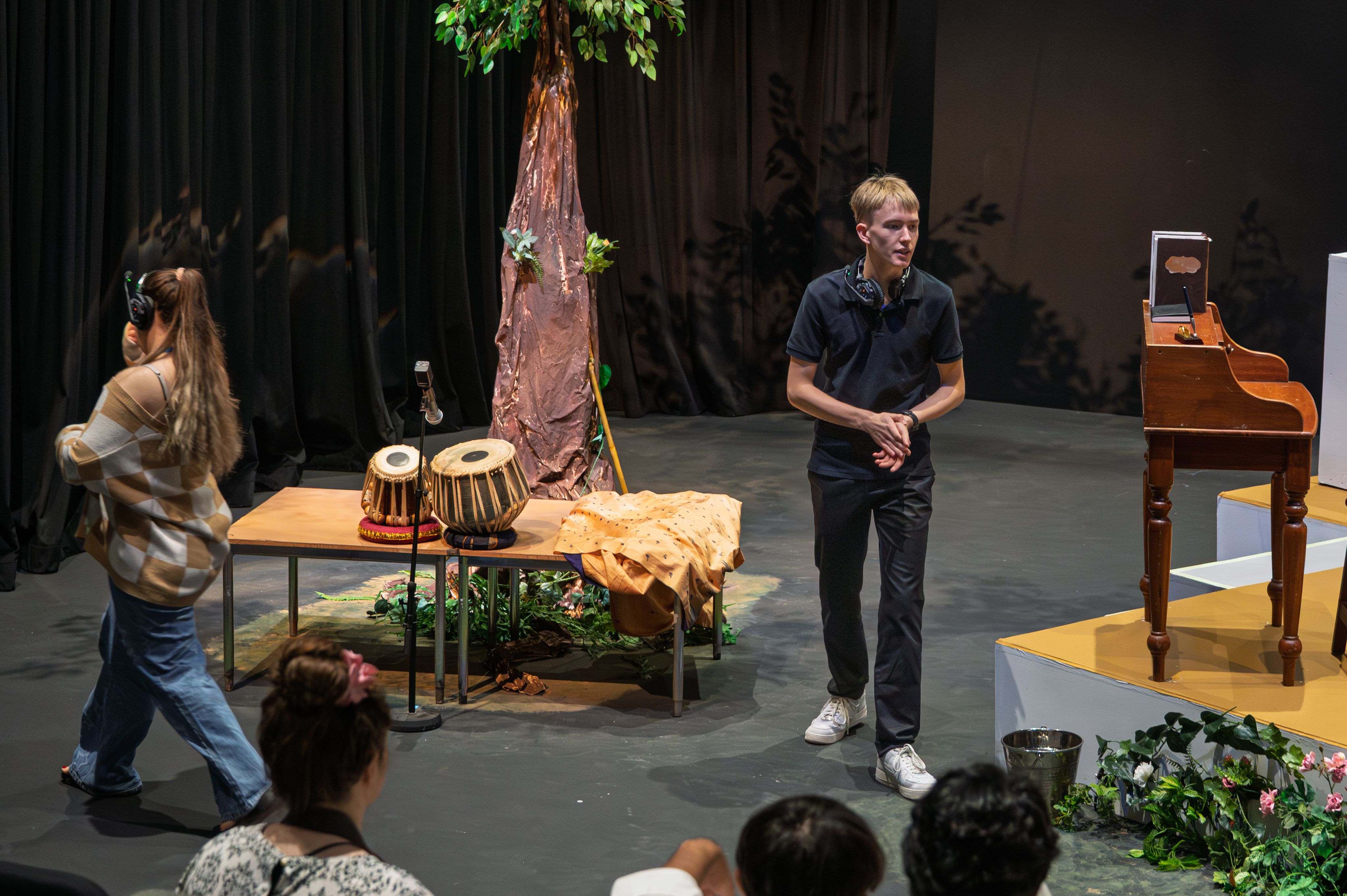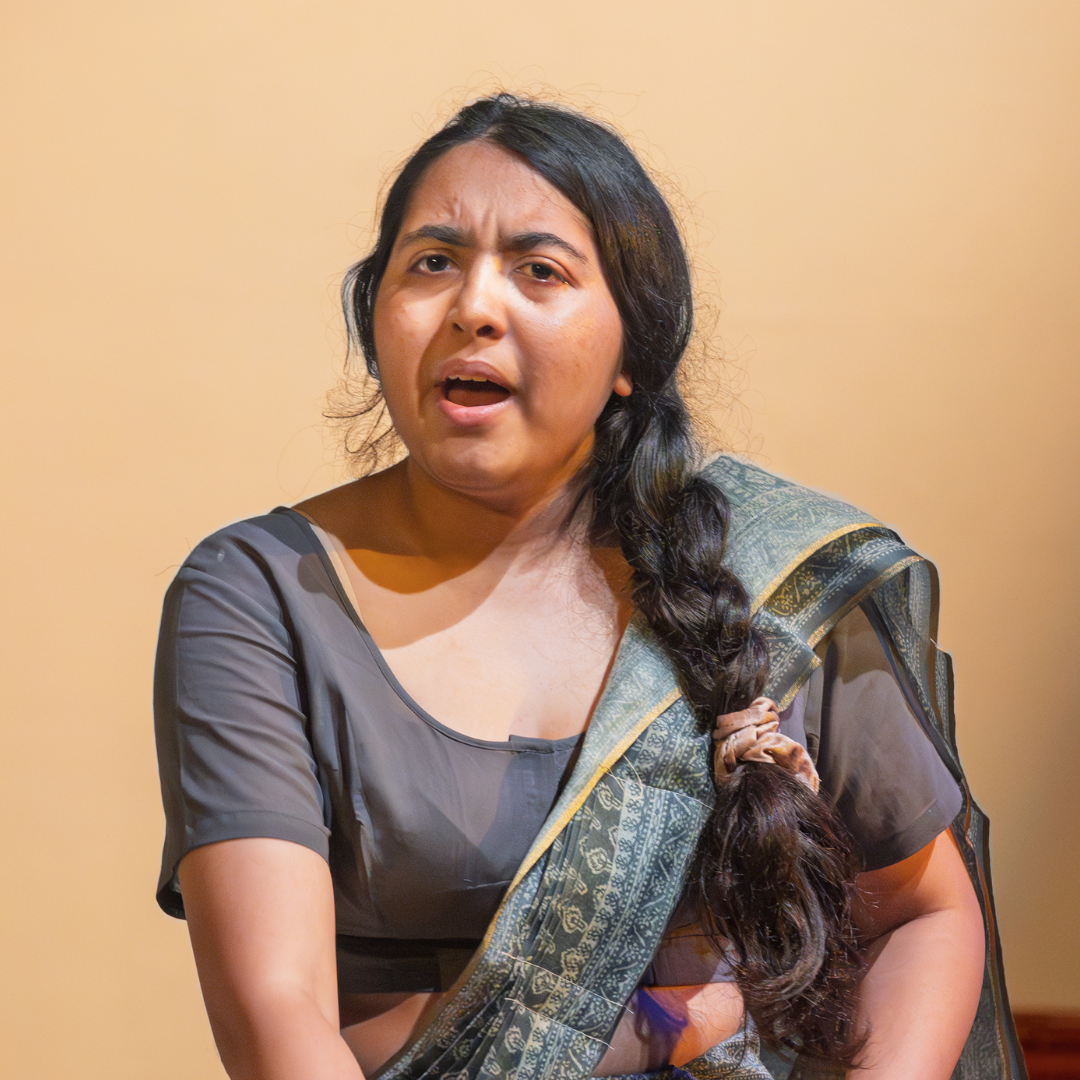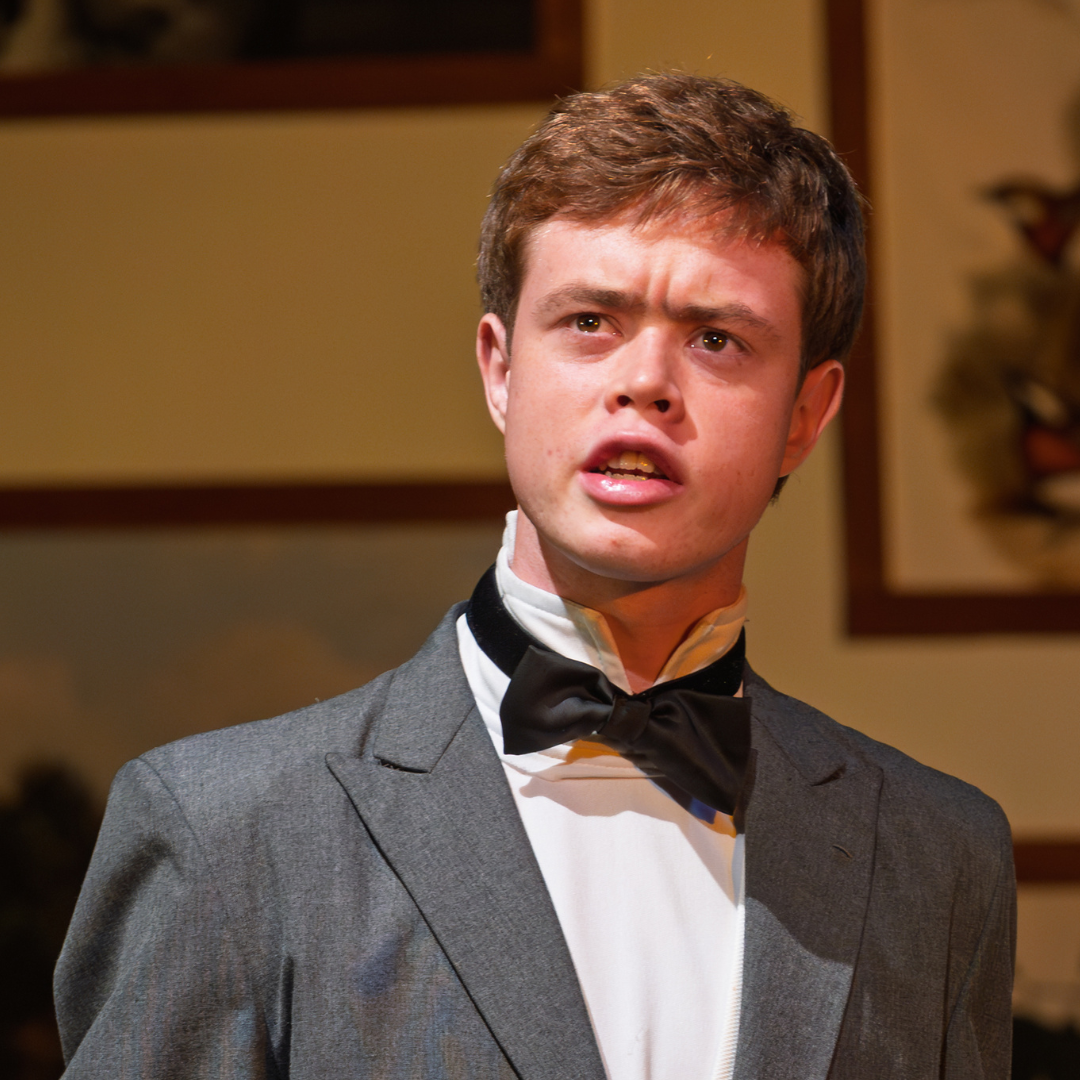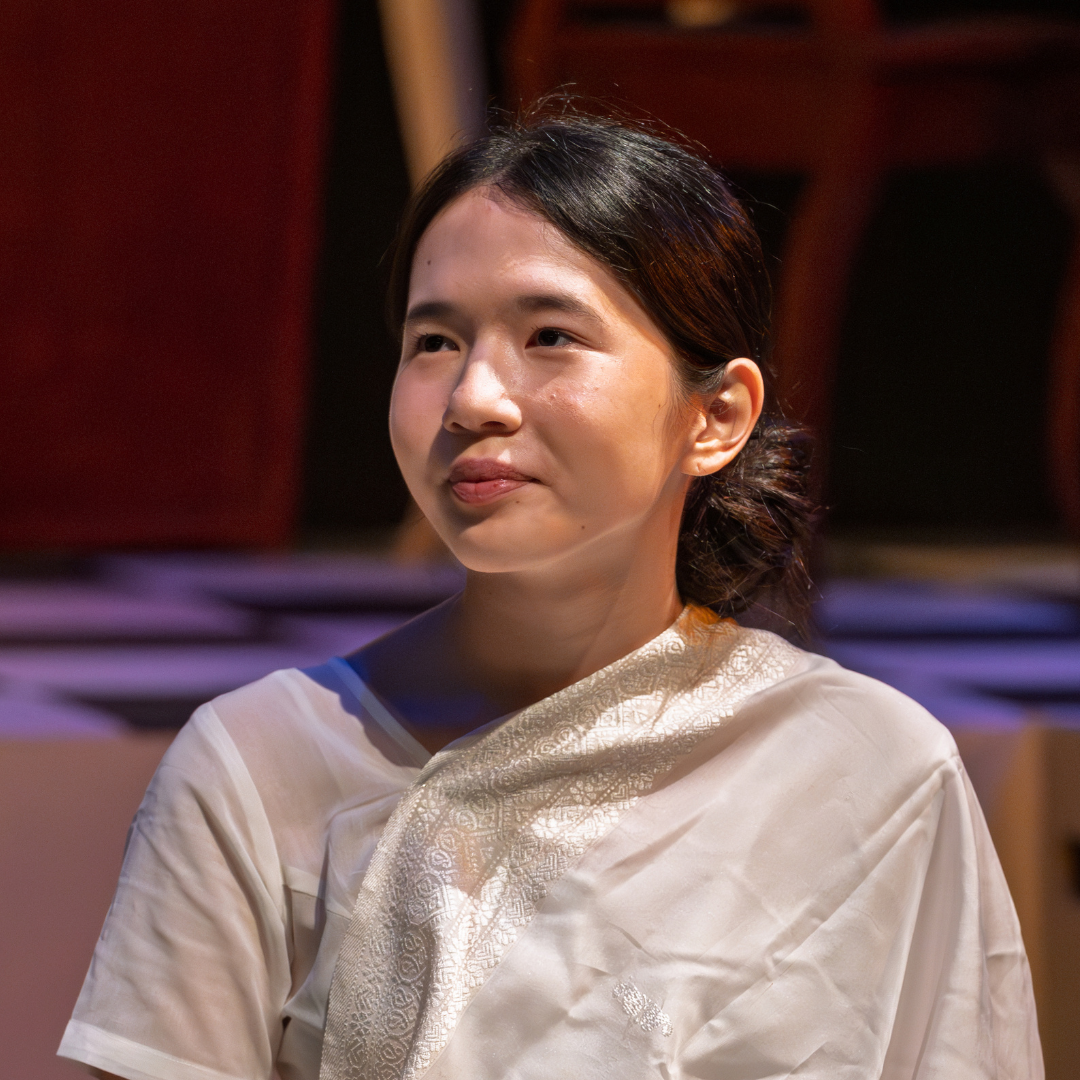Rewriting the Past
A Doll’s House Reimagined
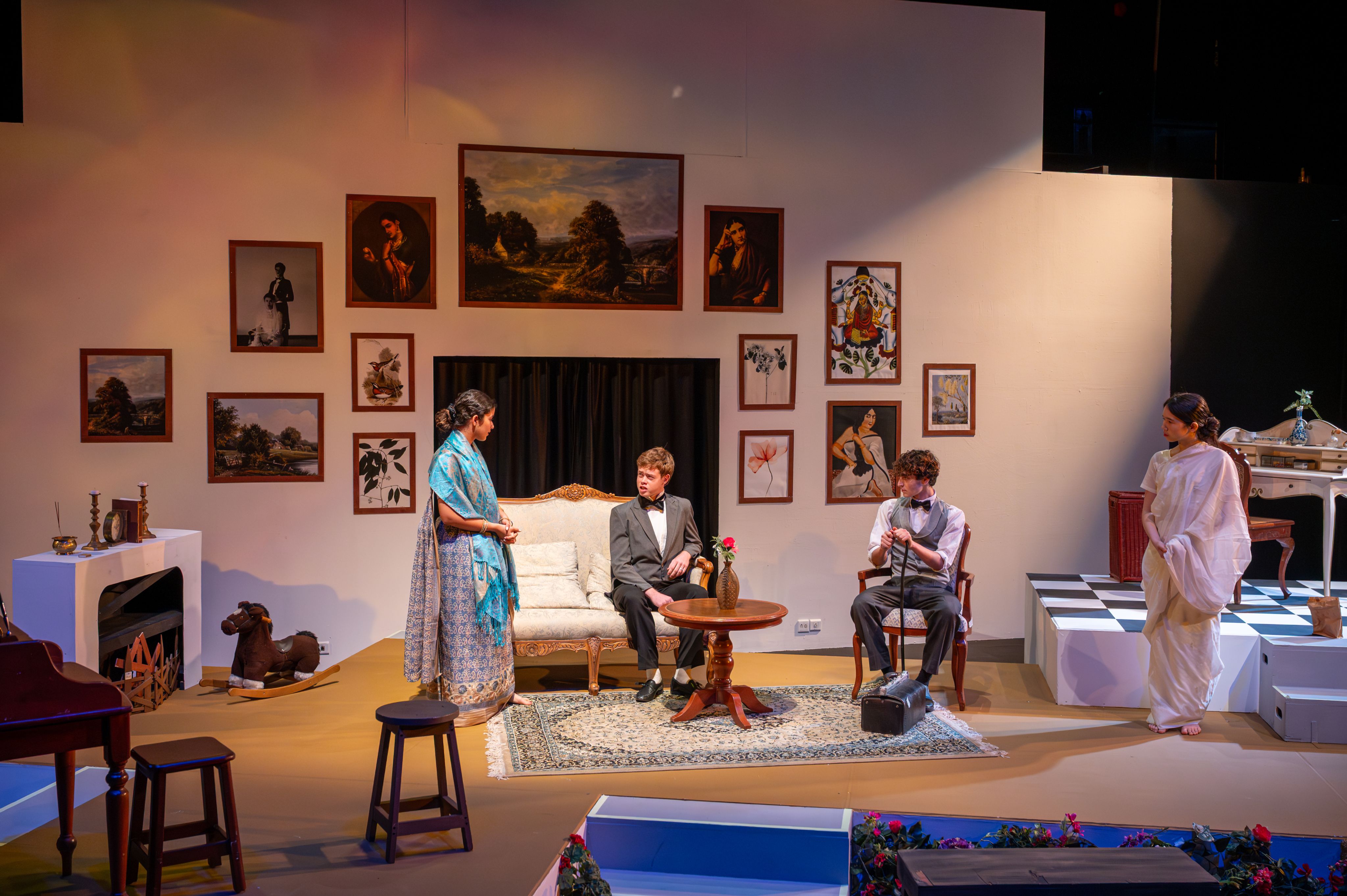
A student-led production that explores identity, power, and empathy through a bold cultural adaptation
At UWCSEA Dover, the student-led production of A Doll’s House stood out as more than a performance – it was a bold and thoughtful reinterpretation of a literary classic. Guided by a team of High School students and directed by a Grade 11 student, the play explored complex themes of gender, race, and colonialism through Tanika Gupta’s powerful adaptation, which relocates Henrik Ibsen’s 19th-century story to British-ruled Calcutta.
We chose Gupta’s adaptation because its themes – colonialism, race, and gender felt especially relevant to a UWCSEA audience. The play doesn’t shy away from difficult truths. If it made people uncomfortable, we knew we were doing something important.
– Rory Porter, Grade 11, Dover Campus (Student Director)
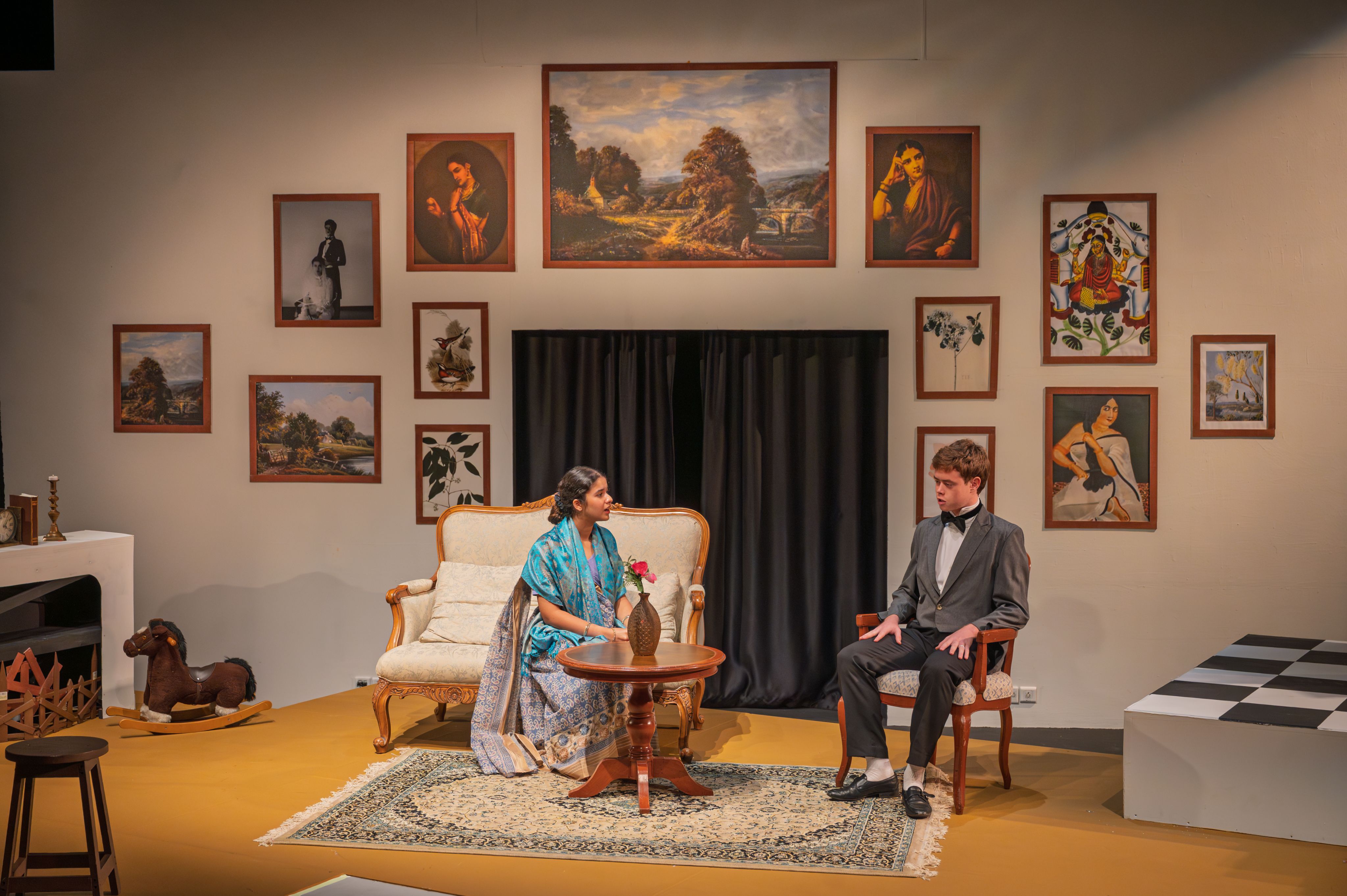
Theatre as Collaboration and Cultural Inquiry
Every element of the production was student-led. From the earliest concept discussions to final lighting cues, the team embraced their autonomy and responsibility. Students worked hand-in-hand with their peers in acting, stage design, lighting and sound, costuming, music, choreography, and marketing. The process was intensive and required strong collaboration, time management, and creative problem-solving.
To ensure cultural accuracy, particularly given the play’s Calcutta setting during the British Raj, students sought guidance from within and beyond the Drama Department. Dr Ruhil, UWCSEA High School teacher, offered invaluable insights into Bengali culture, pronunciation, and historical nuance. Grade 12 student, Aditeya Das, contributed a live Tabla performance that added an authentic layer of sound design to the show. Two Grade 10 students choreographed a classical Kathak dance sequence, helping embed regional movement and music traditions into the heart of the play.
The entire process was a masterclass in collaboration across grade levels, disciplines, and cultural lenses. For many students, it was also their first time leading such a large-scale project. With guidance from the Drama faculty and support from the wider school community, they were empowered to research, experiment, and make decisions that shaped the artistic direction of the production.
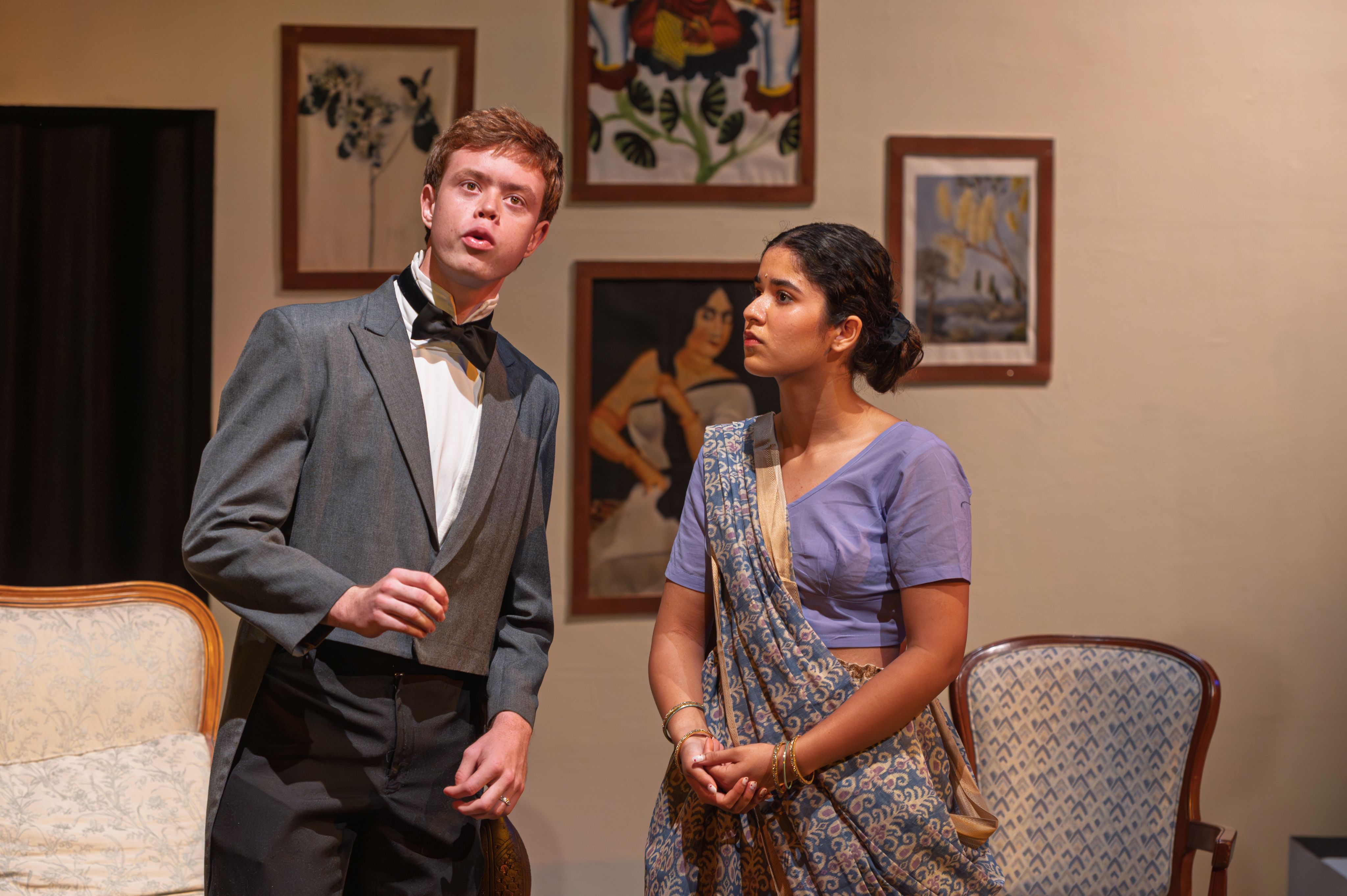
Learning Beyond the Script
Taking on a two-hour production with only six characters meant significant demands on the cast, both in terms of line memorisation and emotional range. Balancing the intensity of rehearsals with academic responsibilities, service commitments, and co-curricular activities tested the students' endurance and planning skills.
But beyond the logistics, the learning went deeper. Students were challenged to interpret and represent characters whose worldviews differed from their own. Doing so required empathy, introspection, and an understanding of how to respectfully portray complex identities – especially in a story deeply entwined with colonial and patriarchal systems.
The cast and crew also navigated technical and creative challenges. Costume design needed to be both historically accurate and manageable for student actors. Sound cues and transitions had to reflect mood and meaning without overshadowing dialogue. Even the set had to strike a balance between authenticity and practicality, creating a sense of time and place within the school’s theatre.
In many ways, the production became an interdisciplinary experience, combining history, literature, ethics, music, and visual design. It was the kind of real-world, project-based learning experience that exemplifies UWCSEA’s holistic education philosophy.
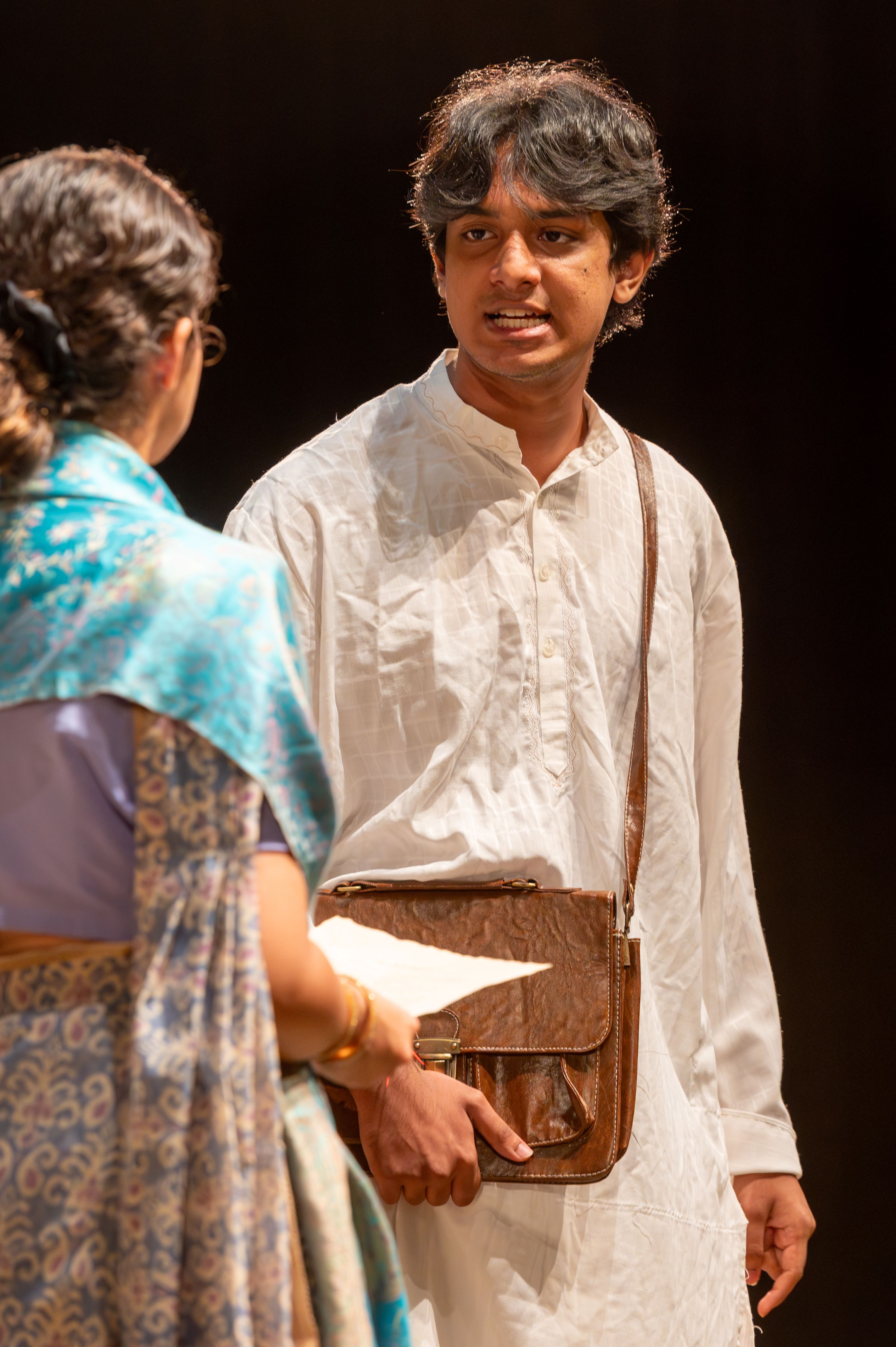
The Impact of Ownership
There’s something uniquely powerful about being trusted to lead. For the students behind A Doll’s House, that trust meant more than creative freedom; it meant taking ownership of a message and a mission. It meant wrestling with hard questions and sitting with uncertainty. It also meant learning to support each other, celebrate differences, and share the spotlight.
"This was more than a show – it was a learning journey. The students weren’t just learning lines. They were learning about history, society, identity, and each other."
Theatre, when done well, can be a mirror and a magnifier. This production did both. It reflected the diversity, curiosity, and thoughtfulness of its student creators, while magnifying the themes that continue to shape global conversations around equity and justice.
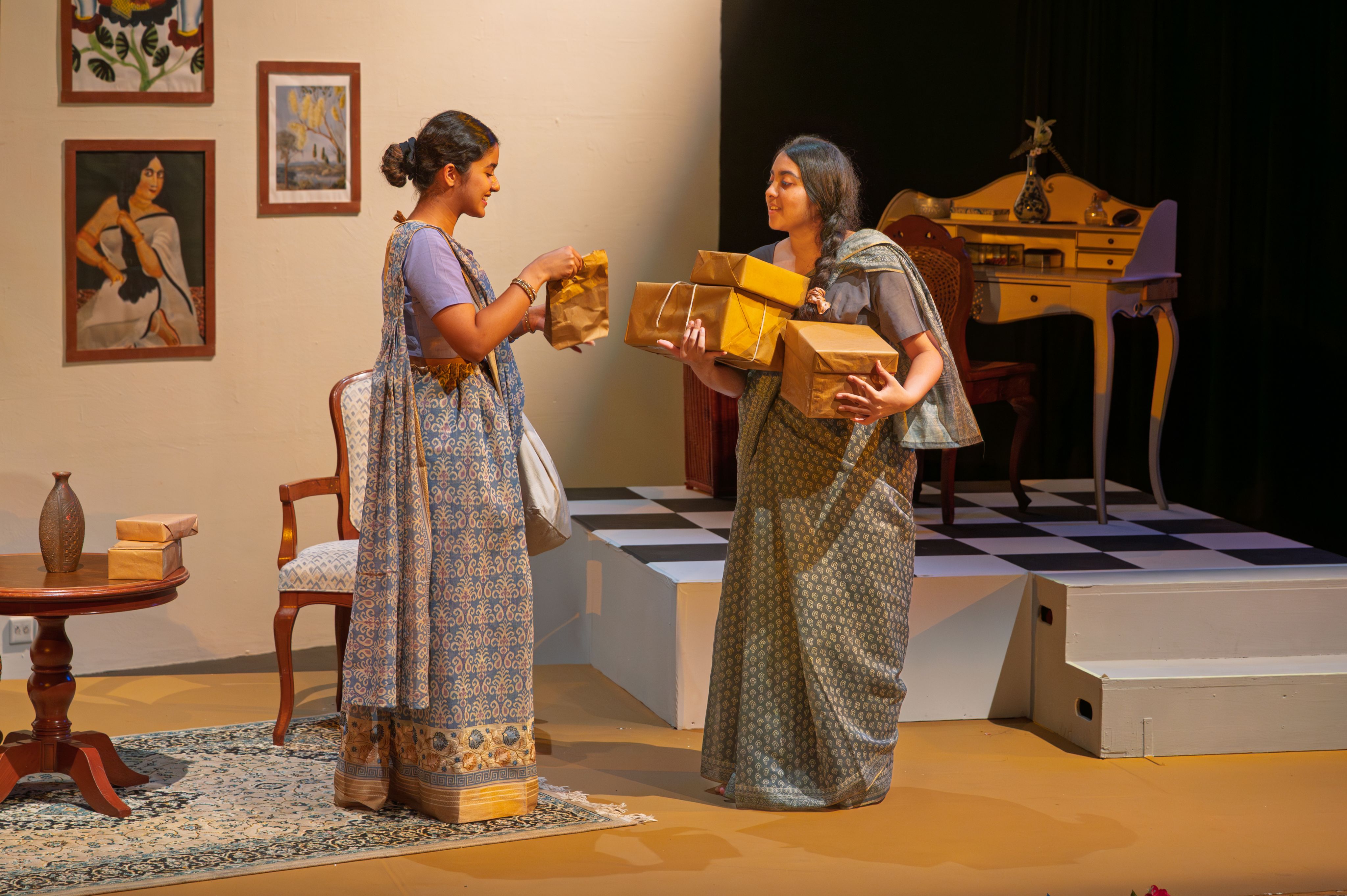
Lasting Lessons
The experience of staging A Doll’s House left an indelible mark on everyone involved. Students developed skills that extend far beyond the theatre – communication, leadership, cultural literacy, and resilience among them. They also developed a greater appreciation for teamwork and for what it means to create something larger than themselves.
"One of the biggest challenges was the sheer number of lines — it’s a long show with a small cast. Balancing rehearsals with everything else wasn’t easy, but we supported each other throughout. Theatre is an exercise in empathy. Some of the characters hold views that I disagree with, but directing required me to understand them from the inside out. That’s a skill I’ll carry forward into all parts of life."
Importantly, the experience reminded students of the power of storytelling. That through drama, they could ask important questions. That they could challenge norms and invite dialogue. And that they could do all this not as future leaders, but as leaders now. As one student said,
"We didn’t just put on a play. We created a space for thinking. We started a conversation."
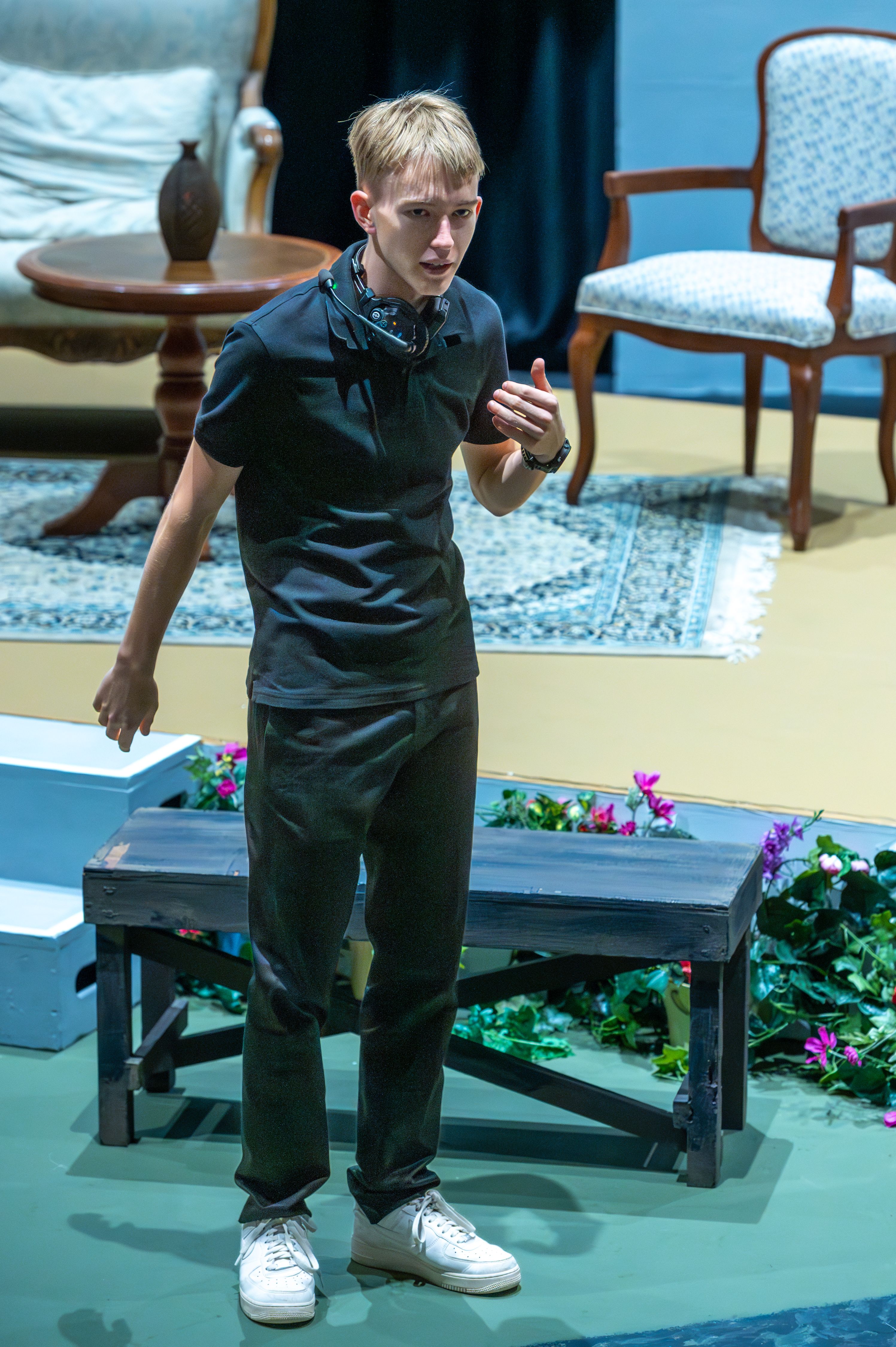
Meet the Cast
Kaushik Das
Played by Vidyuth
Uma
Played by Nandini
Tom Helmer
Played by Jack
Mrs Lahiri
Played by Lelia
Niru
Played by Inika
Dr Rank
Played by Daniel
Tabla Player
Aditeya
Student Director
Rory
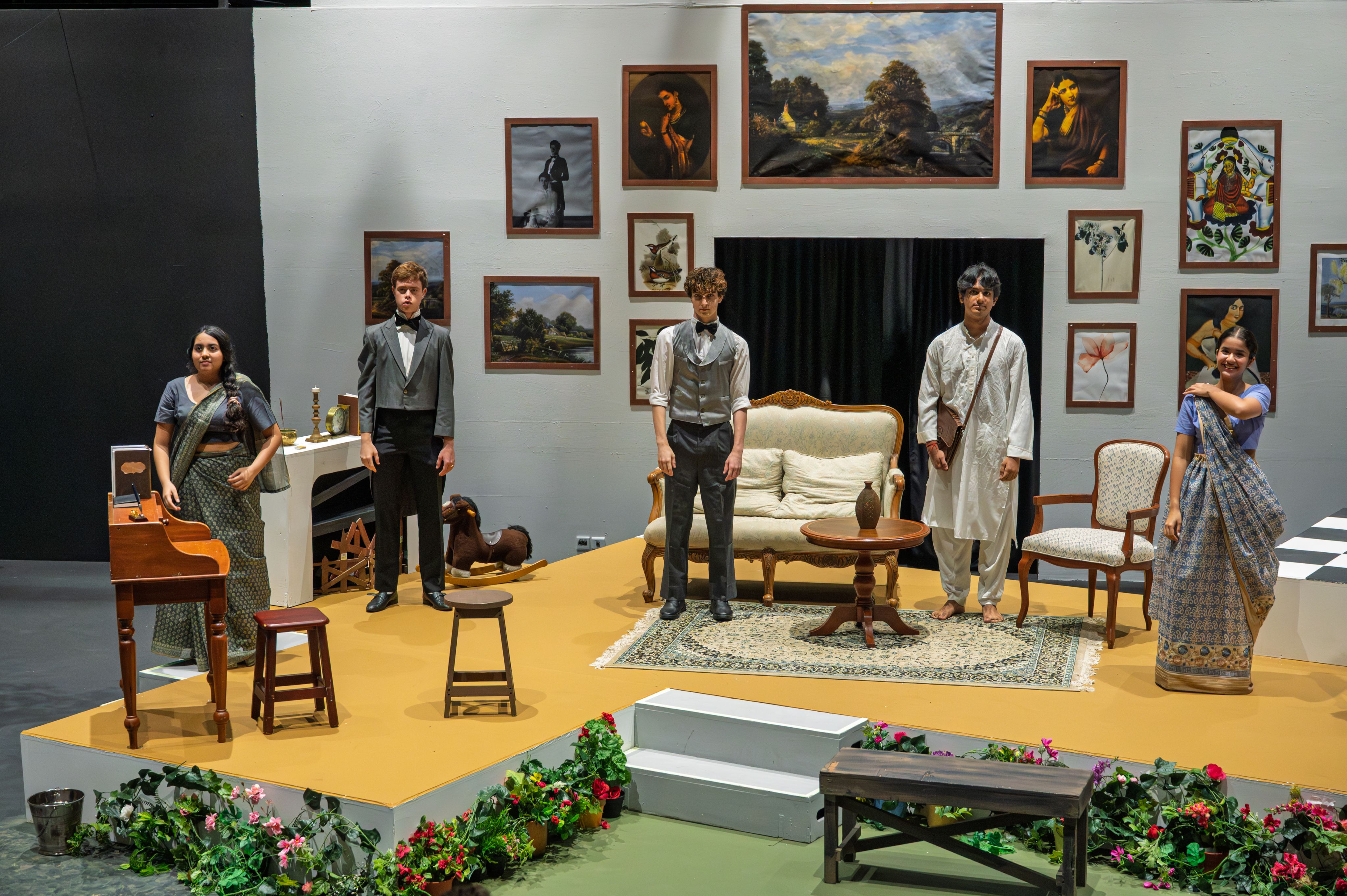
Produced by UWCSEA Marketing and Communication Team
Joe Tan and Sean Gerard



